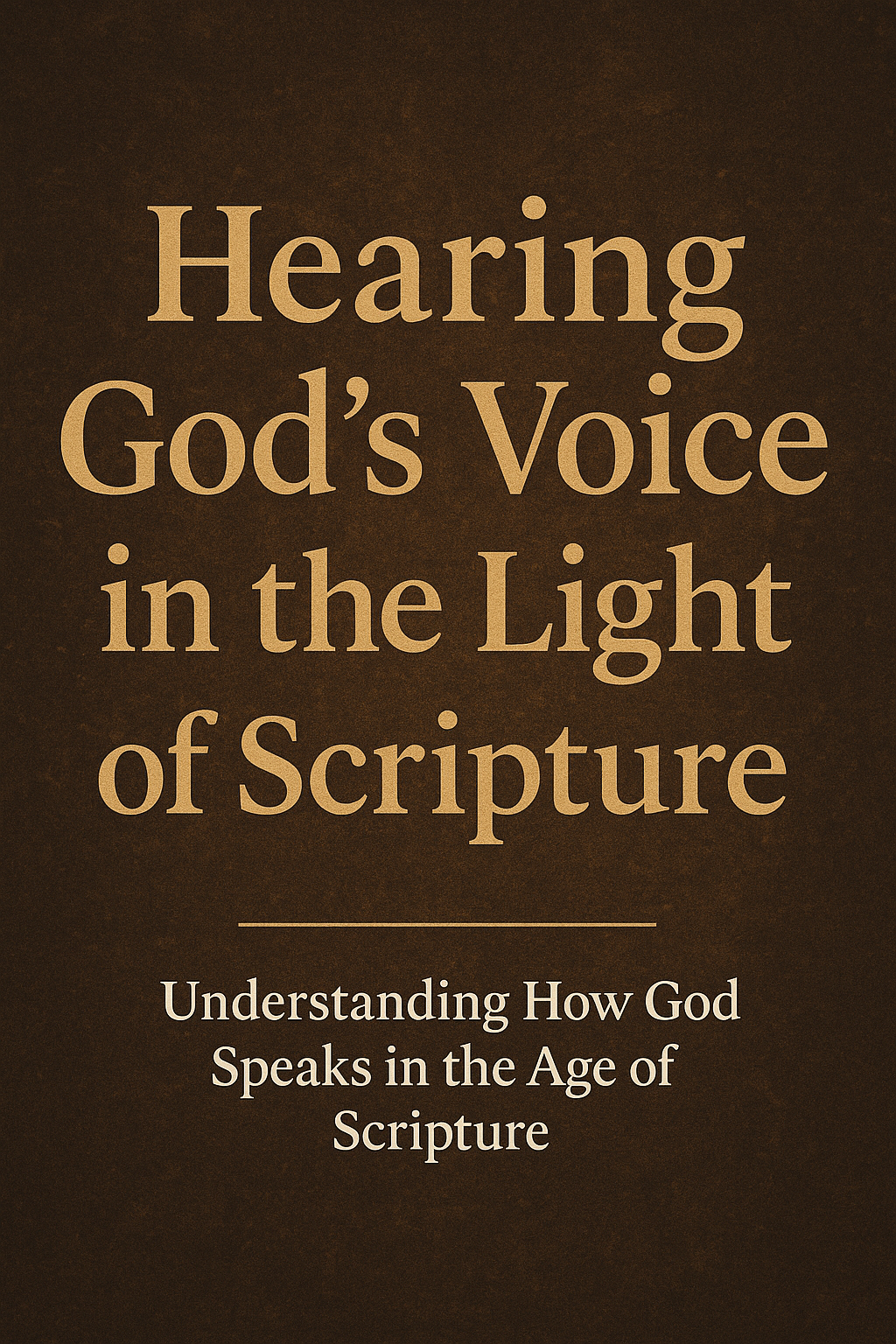⏱️ Estimated Reading Time: 3 min read
Hearing God’s Voice in the Light of Scripture
Understanding How God Speaks in the Age of Scripture
• Written by Dave Jenkins
Introduction
“God told me…”
“I heard His voice in my spirit.”
“I’m waiting for a word from the Lord.”
These phrases are common in many Christian circles—but they raise an important question: What does the Bible say about “hearing God’s voice”?
This is not a matter for speculation or personal experience alone. When it comes to hearing from God, clarity matters more than emotion, and God Himself has told us how He speaks today. The Bible makes clear that God’s voice is not something we have to guess at or mystically detect—it is revealed in His Word.
God Has Spoken—Finally and Fully in Christ
“Long ago, at many times and in many ways, God spoke to our fathers by the prophets, but in these last days He has spoken to us by His Son.”
— Hebrews 1:1–2
In the Old Testament, God spoke through angels, dreams, visions, an audible voice, and the prophets. But in the New Testament era—especially after the resurrection of Christ—His voice is heard most clearly and authoritatively through Scripture. All Scripture is breathed out by God and is sufficient for teaching, rebuking, correcting, and training in righteousness (2 Timothy 3:16–17).
The Bible Is Sufficient for Guidance
Many Christians believe they need a private, personal word from God to make decisions. Yet Scripture tells us God has already given “everything we need for life and godliness” (2 Peter 1:3).
- His moral will—what is right and wrong
- His redemptive plan—Christ and salvation
- His wisdom for everyday life—Proverbs, James, and the whole counsel of God
Rather than waiting for a new word, we are called to be shaped by the Word He has already spoken.
“Your word is a lamp to my feet and a light to my path.”
— Psalm 119:105
Misunderstanding the “Still Small Voice”
Some appeal to Elijah’s encounter with the “still small voice” (1 Kings 19:12) as a model for hearing God today. But this was a unique, prophetic event—not a template for everyday Christian life.
The New Testament never instructs believers to listen for an inner, mystical voice. Instead, it calls us to:
- Abide in Christ and His Word (John 15:7)
- Renew our minds by Scripture (Romans 12:2)
- Walk by the Spirit, who illuminates the truth (Galatians 5:16; John 16:13)
The Dangers of Seeking Extra-Biblical Revelation
While God is sovereign and may use circumstances or impressions to guide us, making such experiences a normative way to “hear God’s voice” is dangerous. It can:
- Undermine the sufficiency of Scripture
- Lead to confusion, subjectivity, or deception
- Open the door to false teaching (“God told me…”)
- Produce spiritual anxiety over whether we’ve “heard correctly”
“Every word of God proves true… do not add to His words.”
— Proverbs 30:5–6
God is not silent—but neither is He ambiguous. He speaks clearly and authoritatively in His Word.
Conclusion: Open Your Bible—That’s Where God Speaks
We do not need to chase an inner voice or wait for a mystical prompting. We have something better: the living and active Word of God (Hebrews 4:12).
“My sheep hear My voice, and I know them, and they follow Me.”
— John 10:27
How do we hear His voice today? By reading, meditating on, and obeying Scripture.
Don’t look inward—look to Christ. Don’t chase impressions—stand on revelation. Don’t expect new words—treasure the final Word.
Check out Contending for the Word Q&A and our podcast at YouTube.
Dave Jenkins is happily married to his wife, Sarah. He is a writer, editor, and speaker living in beautiful Southern Oregon. Dave is a lover of Christ, His people, the Church, and sound theology. He serves as the Executive Director of Servants of Grace Ministries, the Executive Editor of Theology for Life Magazine, the Host and Producer of Equipping You in Grace Podcast, and is a contributor to and producer of Contending for the Word. He is the author of The Word Explored: The Problem of Biblical Illiteracy and What To Do About It (House to House, 2021), The Word Matters: Defending Biblical Authority Against the Spirit of the Age (G3 Press, 2022), and Contentment: The Journey of a Lifetime (Theology for Life, 2024). You can find him on Facebook, Twitter, Instagram, Youtube, or read his newsletter. Dave loves to spend time with his wife, going to movies, eating at a nice restaurant, or going out for a round of golf with a good friend. He is also a voracious reader, in particular of Reformed theology, and the Puritans. You will often find him when he’s not busy with ministry reading a pile of the latest books from a wide variety of Christian publishers. Dave received his M.A.R. and M.Div through Liberty Baptist Theological Seminary.




